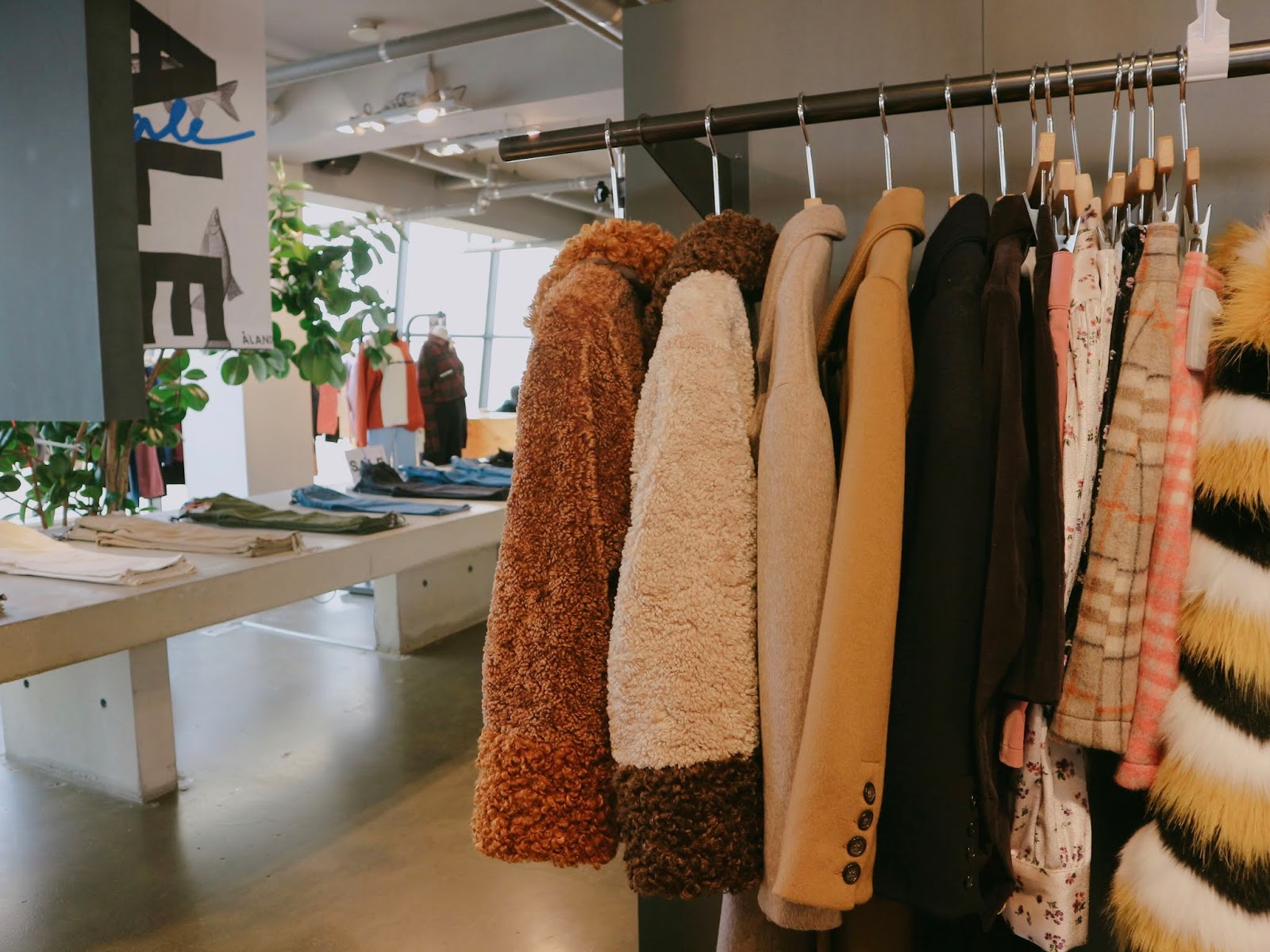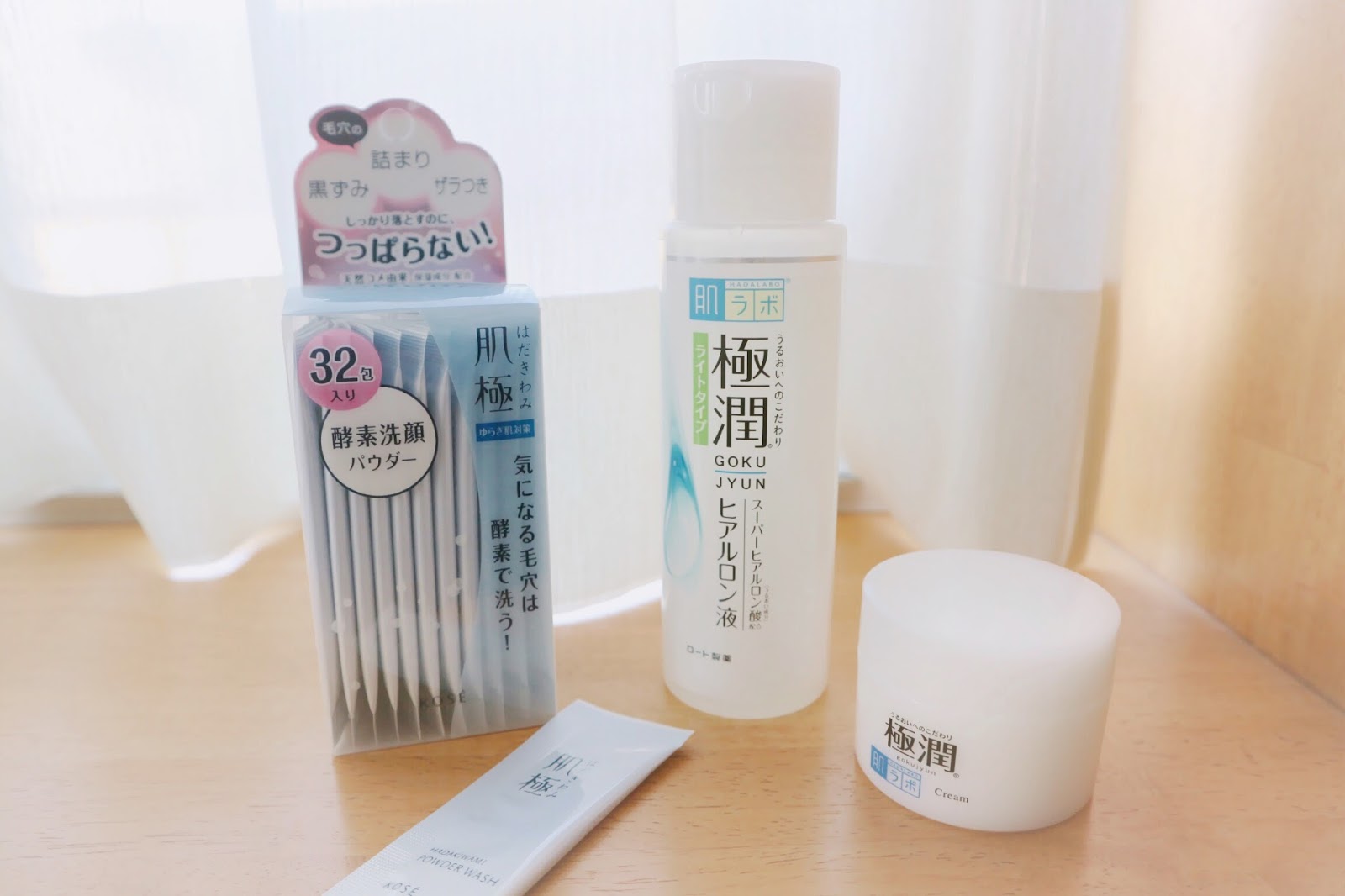What is Slow Fashion?
With a captivating documentary like The True Cost being streamed worldwide, you don't need me telling you about the negative impact fast fashion is making on our environment and society. I'm definitely not an expert on this topic but I'd like to share a few things I've learned since making the personal transition to slow fashion this year.
...
In order to grasp the value of slow fashion, I needed to understand sustainable/ethical fashion and how it's different from fast fashion.
Some may disagree with me on this, but I believe that there can't be sustainability without ethics when it comes to the manufacturing of clothing. Something that is sustainable promotes the good health and burgeoning of our environment while production ethics promote fair wages, fair trade practices, and well-maintained/safe working conditions for all workers--from the cotton farmers to factory employees, I strongly believe each person should be compensated with a fair living wage and benefits. Consequently, to still make a profit and remain in business, sustainably-made/ethical brands will price items higher, while also curating their collections to ideally last longer and be liked by consumers regardless of current trends. Most ethical (and I use this term loosely) brands will introduce new items a few times each year while fast fashion brands are known to release new collections at least twice a month to keep up with current trends. These fast fashion industries which include popular brands Forever 21, H&M, Urban Outfitters, and Zara will also favor quick, highly affordable, and profitable methods which not only hurts the quality of their products but can often jeopardize sustainability and ethics in the process. As a result of a rapidly changing consumer demand for seasonal styles, clothing is manufactured at exponential rates, and prices are kept relatively low.
So now, what makes slow fashion? Slow fashion, in simple terms, is the opposite of fast fashion. Slow fashion prioritizes an ethically-conscious business strategy by focusing on quality over quantity, employee welfare, and environmental impact. Consequently, this clashes with the business psychology of fast fashion, which thrives on immediate gratification and the close following of rapidly fluctuating consumer trends. You can think of fast fashion as a quick fix to any fleeting material desires while slow fashion is meant to last through changing seasons, styles, and moods. Fast fashion is also known to be cheap, in price and quality of material.
I admit that I was a major consumer of fast fashion as a teenager. Frankly, I didn't see the worth back then in buying such an expensive alternative when all I wanted was to be fashionable and feel chic on a budget. There's a stereotype being spread that ethical and sustainable fashion is reserved for the rich and elite who have money to spend. Although, undoubtedly, fashion brands marked as sustainable and ethical tend to be priced much higher than fast fashion alternatives, I also want to point out that slow fashion is not limited to purchasing the most sustainable and ethical product on the market. Slow fashion, in the way I came to understand it, is about creating and using pieces in a mindful way that is meant to make clothing last and be loved for longer...
"Sustainable fashion" can be an oxymoron.
(I want to thank my friend Evelyn for pointing this out to me.) There are so many start-up brands that promote the concept of a minimalist's wardrobe, and I think people are ready to jump on the bandwagon without actually paying attention to why fast fashion was a problem in the first place: too much waste. Not only waste throughout the manufacturing process, but more waste in the grand scheme of things as trends come and go while Goodwill donation boxes continue to overfill every time Marie Kondo gains a new follower. These start-up brands have great advertising strategies and focus so much on aesthetics or anything that grabs an uninformed customer's attention. Of course, their items will sell because the original buyers of fast-fashion will continue to buy without understanding the ecological issue at hand. In the end, their so-called sustainably-made and trendy clothes will end up where most trendy items end up eventually: maybe abroad, definitely in a clothing landfill*.
Now, before you get the wrong idea, I am in no way claiming that I don't believe sustainable fashion is unattainable. It's human nature to want new things and, although we can't change this nature, our technology and creative minds can help us reverse the damage if we try. Moreover, manufacturing clothing in the most ethical and sustainable way should be one of our priorities not only when we want to fight climate change but also when we want to promote basic human rights (think fair wages and safe working conditions!). Rather, I think the idea of fashion as we grew up to know it--fast, always changing, and trendy--is not sustainable and the over-saturation of brands in the market is making us lose sight of this issue.
You can follow slow fashion and maintain a sustainable wardrobe without buying anything.
I want to point out that sustainable brands and sustainable wardrobes are not the same things. I've heard of people online who, after watching The True Cost and reading The Life-changing Joy of Tidying Up, retain none of the issues behind both of these very different sources and start throwing out everything in their closet to replace them with alternatives from only "ethical" brands. Trust me, I used to be one of them. Self-proclaimed "minimalists" can be wasteful too if they're immediately discarding items left and right to make space for something new.
Of course, I don't want to be promoting a culture of clothing hoarders and I understand that we do need to let go of things every once in a while. But before filling up garbage bags of stuff and hauling them to the nearest second-hand store, think carefully about what you're getting rid of in the first place and recycle, resell, or mindfully donate your old unused items accordingly.
You don't need to strictly purchase from "ethical fashion" brands to have a sustainable/eco-friendly wardrobe. Chances are you might already have a slow fashion mindset, naturally. Take someone who may only own clothing from fast fashion brands but has been wearing the same items for years. Aside from the actual production of the clothing, there isn't anything inherently wasteful about making the most use of what you already have.
How can one start adopting a slow fashion mindset? Stop shopping. Or better yet, shop mindfully by only buying what you really need. Well, we can't all neglect fashion entirely and commit to wearing the same five shirts on rotation. I agree that expression through clothing is a wonderful thing. The beauty of slow fashion is that it forces you to develop a personal style that focuses on quality over quantity. Personally, when I'm looking at something new that I'd like to add to my wardrobe, I take the time to think about how my purchase will benefit my life long-term and also how that item will fit into my life. Do I want to buy it because I'm wanting to immediately gratify a want or because I know it will supplement my already existing wardrobe and I intend to wear it for years to come? I also learn about where I'm buying from and what kind of company I'm supporting with my hard-earned money. On top of making sure that I'm supporting an ecologically sustainable production line and a business that values the employees as much as the employers, I want to be aware of the company's stance on human justice, gender equality, and anti-racism. This kind of research definitely takes time, emphasizing the "slow" in slow fashion.
Slow fashion is not reserved for the rich because expensive does not always mean higher quality, sustainable, or ethical.
This should be obvious considering the questionable and ambiguously stated ethics of the luxury brand market. I agree that ethically-made clothing does come at a higher price than the usual fast fashion brands that we're used to, and I understand that the prices do need to be adjusted in order to compensate for workers' fair wages and sustainably sourced materials. I whole-heartedly support brands that emphasize paying fair wages but I've also learned that there is a great lack of pricing and sourcing transparency with this market.
In an ideal world, every brand would be clear and definite about their manufacturing sources and costs. Sadly, this is not the case, and once-popular brands such as Everlane continue to promote themselves as "sustainable and ethical" despite denying store worker rights to union-forming*. Moreover, an incredibly successful brand, such as Reformation, can score high on the sustainability scale but lack significantly in ethics by being racist, sexist, or size exclusive, to name a few common issues.
It's great that more and more people are interested in sustainable fashion but with that rising public interest comes the proliferation of "green-washing": pretending to be sustainable and environmentally-progressive merely by making a statement they are but continuing mass production and unsustainable practices on the other hand. By deliberately following the growth of eco-conscious consumers, luxury brands and fast fashion companies alike know how to make money. H&M and their eco-conscious collection is a great example of this. How can they possibly be eco-conscious by continuing to dish out thousands of styles a week? Or have the profits of their "eco-conscious" collection also fuel the growth of their non-eco-conscious inventory? Sadly, signing an ambiguous pact is not enough to make sure that we're making the positive change toward a more ethically-conscious world*. Still, both sides continue to make a profit because, frankly, people don't have time to dig into the facts.
I was actually first introduced to sustainable fashion back in 2014 when I adored American Apparel and shopping at their warehouse store in DTLA. Although that company is a bust now and Dov Charney is a total creep and overall bad guy, it was a brand that I believe grabbed the attention of fast fashion followers and contributed to the growth of an ethically-conscious fashion culture. Nowadays, there are several sustainable brands out there and I think it's a great step towards making sustainable fashion mainstream. However, we still have a long way to go if we want to make slow fashion mainstream, as well.
Lastly, I want to note that even having the time to be interested in the concept of slow fashion and sustainability is a privilege. Not everyone can afford to purchase from sustainable brands and shopping second-hand is not the best option (e.g. for hygienic reasons, underwear should not be purchased second-hand). Even having the choice to shop second-hand instead of buying something brand new is a privilege when, to many around the world, owning second-hand is the only option. I definitely have no intention to attack anyone's personal spending or views on fashion. In no way am I also saying that I have the credibility to address this topic fully in the first place. I believe that each person has a right to their own opinion (even if it means... *fist clenching* not agreeing with me...). But really, there's still so much I don't know, and I hope you can join me in this journey of life-long learning towards increasing eco-consciousness and intentional living.
What are your thoughts on slow and sustainable fashion? I'd love to know. 🤗
Thank you for reading.



Comments
Post a Comment